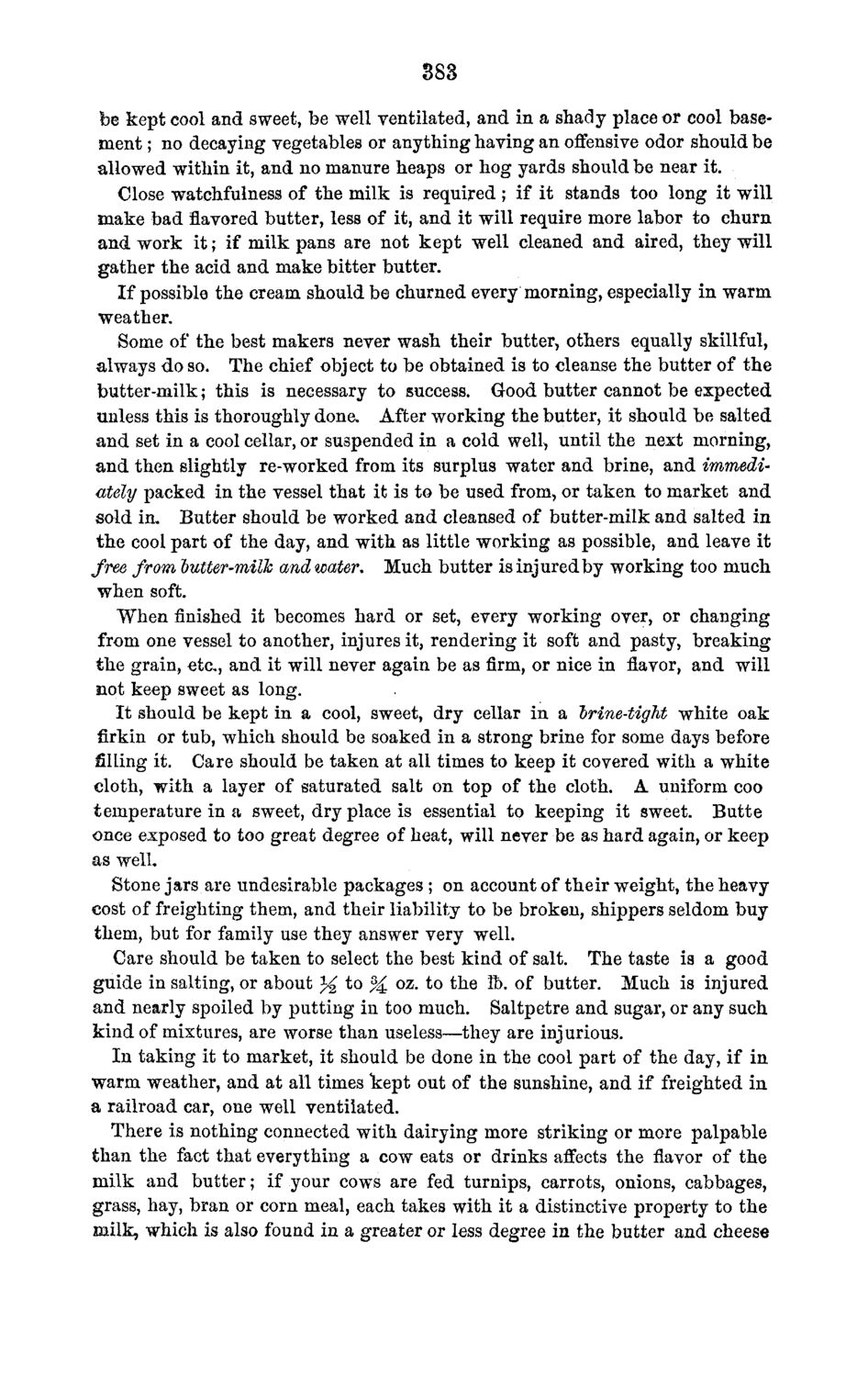| |
| |
Caption: Board of Trustees Minutes - 1870
This is a reduced-resolution page image for fast online browsing.

EXTRACTED TEXT FROM PAGE:
38S be kept cool and sweet, be well ventilated, and in a shady place or cool basement ; no decaying vegetables or anything having an offensive odor should be allowed within it, and no manure heaps or hog yards should be near it. Close watchfulness of the milk is required; if it stands too long it will make bad flavored butter, less of it, and it will require more labor to churn and work it; if milk pans are not kept well cleaned and aired, they will gather the acid and make bitter butter. If possible the cream should be churned every morning, especially in warm weather. Some of the best makers never wash their butter, others equally skillful, always do so. The chief object to be obtained is to cleanse the butter of the butter-milk; this is necessary to success. Good butter cannot be expected unless this is thoroughly done* After working the butter, it should be salted and set in a cool cellar, or suspended in a cold well, until the next morning, and then slightly re-worked from its surplus water and brine, and immediately packed in the vessel that it is to be used from, or taken to market and sold in. Butter should be worked and cleansed of butter-milk and salted in the cool part of the day, and with as little working as possible, and leave it free from lutter-milk and water. Much butter is injured by working too much when soft. When finished it becomes hard or set, every working over, or changing from one vessel to another, injures it, rendering it soft and pasty, breaking the grain, etc., and it will never again be as firm, or nice in flavor, and will not keep sweet as long. It should be kept in a cool, sweet, dry cellar in a trine-tight white oak firkin or tub, which should be soaked in a strong brine for some days before filling it. Care should be taken at all times to keep it covered with a white cloth, with a layer of saturated salt on top of the cloth. A uniform coo temperature in a sweet, dry place is essential to keeping it sweet. Butte once exposed to too great degree of heat, will never be as hard again, or keep as well. Stone jars are undesirable packages ; on account of their weight, the heavy cost of freighting them, and their liability to be broken, shippers seldom buy them, but for family use they answer very well. Care should be taken to select the best kind of salt. The taste is a good guide in salting, or about ^ to % oz. to the lb. of butter. Much is injured and nearly spoiled by putting in too much. Saltpetre and sugar, or any such kind of mixtures, are worse than useless—they are injurious. In taking it to market, it should be done in the cool part of the day, if in warm weather, and at all times kept out of the sunshine, and if freighted in a railroad car, one well ventilated. There is nothing connected with dairying more striking or more palpable than the fact that everything a cow eats or drinks affects the flavor of the milk and butter; if your cows are fed turnips, carrots, onions, cabbages, grass, hay, bran or corn meal, each takes with it a distinctive property to the milk, which is also found in a greater or less degree in the butter and cheese
| |